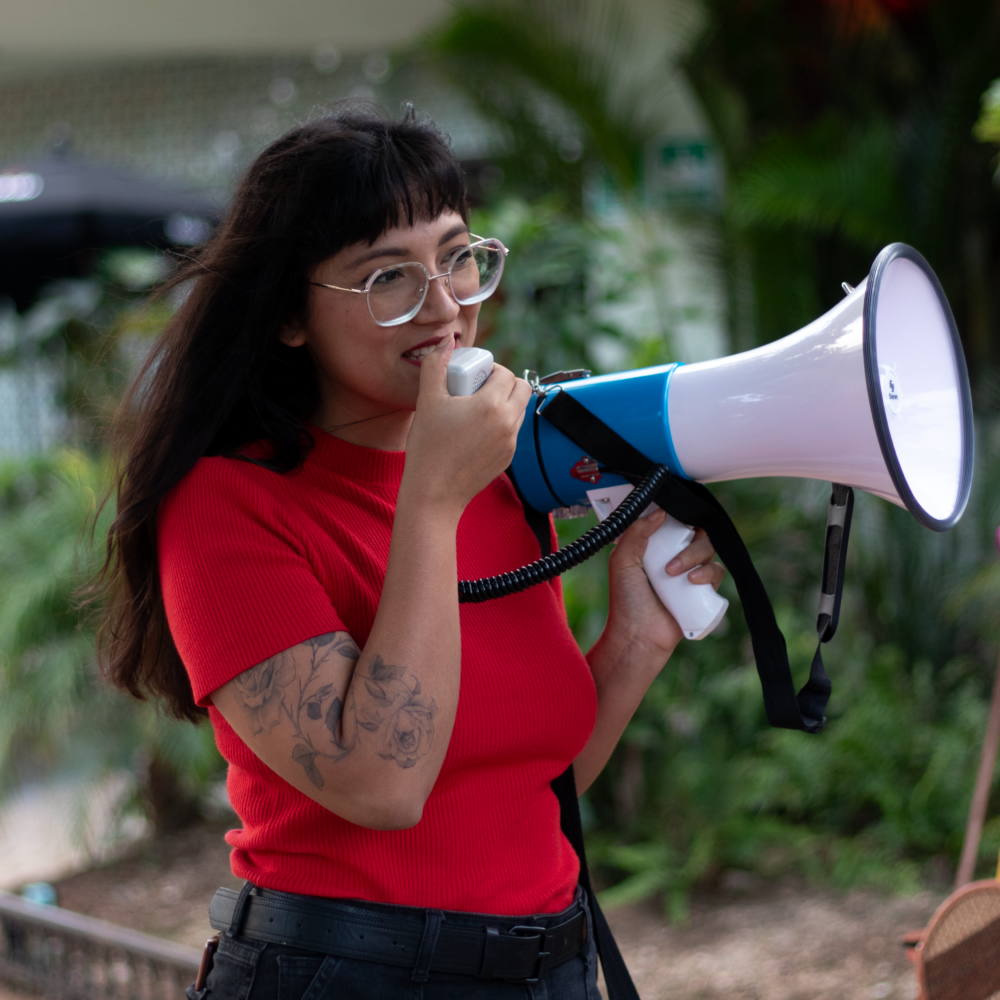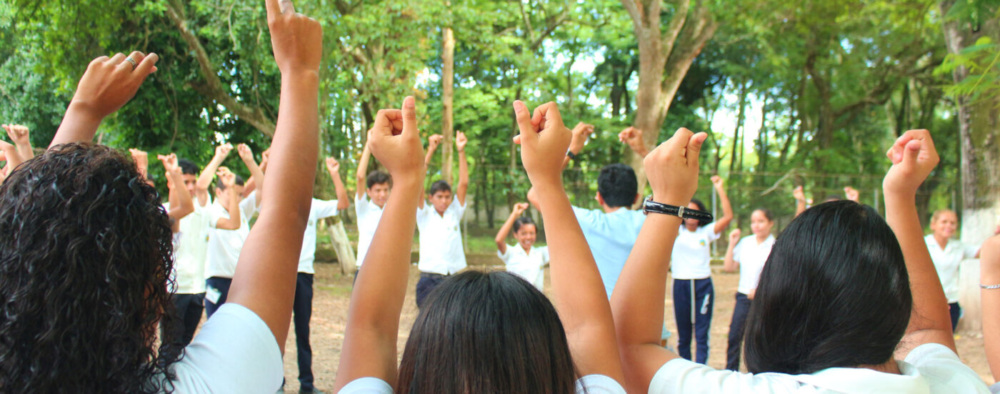
The shift the power mindset
Global Fund for Children President and CEO John Hecklinger shares how GFC is shifting power to community-based partners, including youth-led groups.
When Maya Ajmera founded Global Fund for Children in 1993, the idea was novel, even radical: to completely transform power in funding relationships, from top down to bottom up. A chance encounter with homeless children attending an informal school on a train platform in Bhubaneswar, India, had inspired Maya to create an organization dedicated to supporting grassroots groups that empower children and youth.
Over the next 25 years, GFC became very good at finding truly locally adapted organizations, establishing trust-filled relationships, and providing flexible funding over multiple years paired with support beyond the check.
Built on the idea that local leaders know best, GFC pooled funds from donors and supported nascent organizations deemed too risky, too new, or too unorthodox by more traditional funders. GFC recognized that primary accountability must be to communities, the importance of trust in a funder-grantee relationship, the embrace of risk by both funder and grantee, and the job of the funder to be a true partner in a shared effort to accomplish mutual goals.
[image_caption caption=”A youth circle facilitated by GFC partner Organización para el Empoderamiento de la Juventud in Honduras. © OYE” float=””]
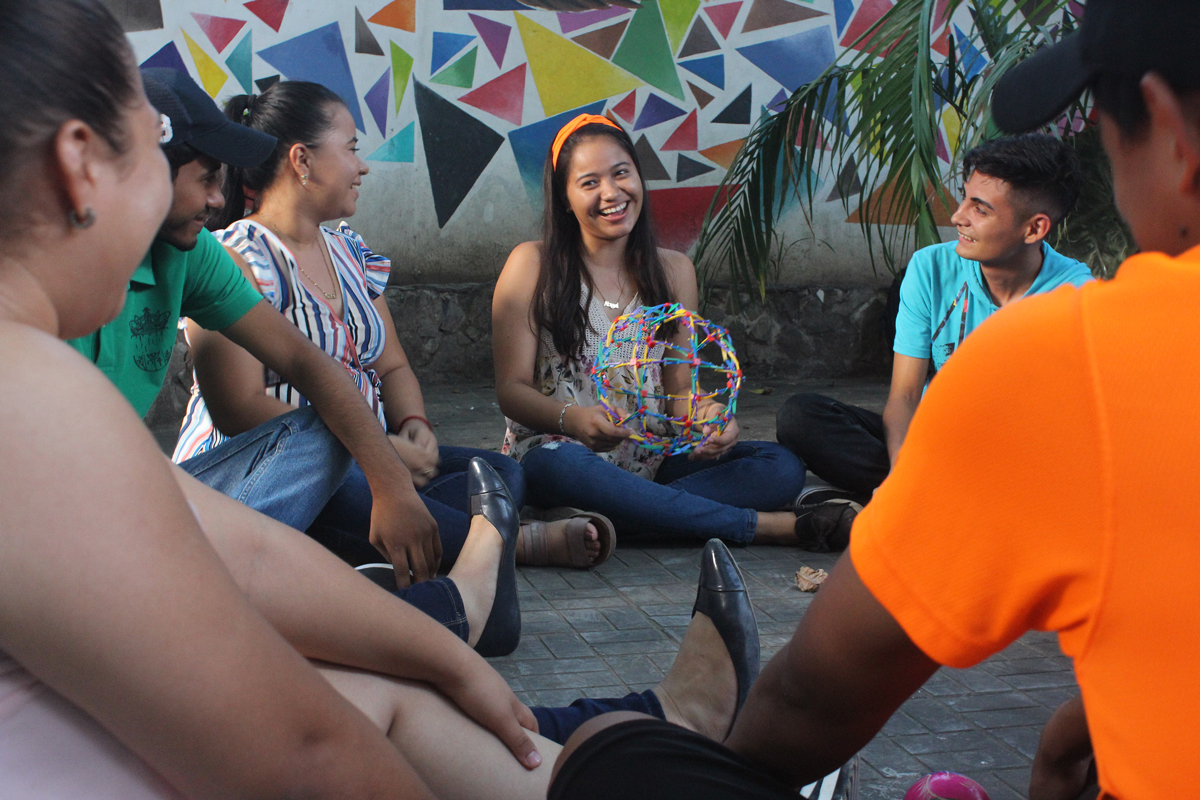
[/imagem_legenda]
This isn’t to say that we haven’t faced challenges in putting these values into practice. How, as a Washington, DC- and London-based “northern” organization, with funds to allocate and the aspiration to develop capacity, do we operate in a way that truly shifts power, when there is an unavoidable money-related power dynamic at play? And what about other forms of power? The power to take risks? The power to make decisions? The power to push back and question?
It’s easy, with the best of intentions, to slip into the very patterns we aspire to disrupt. Are we unconsciously asking partner organizations to adhere to our ideas? Is the promise of funding preventing us from establishing truly trust-filled relationships with our partners? Asking these questions is perhaps even more critical in a time of increasing restrictions on civil society organizations; spontaneous, informal youth-led movements; and a global pandemic that limits physical connection while sparking quick adoption of new modes of connection.
So, here are our commitments with examples of how we’re trying to deliver on them.
1. We approach our work with a #shiftthepower mindset
One of GFC’s core values is “serve partners first,” which provides a useful guide. Every team member must keep this value in mind, so we don’t overburden our partners with extractive reporting requirements or rigid adherence to project goals.
During the pandemic, for example, GFC took advantage of the increased flexibility offered by a funder to scrap planned activities – such as capacity assessment workshops and a final convening – for an initiative to address gender inequality in Mexico and Central America. Instead, we asked our partners how they wanted to engage going forward.
[image_caption caption=”Young women in Mexico participating in an activity facilitated by Centro Integral de Atención a las Mujeres, a partner in the Changing Gender Attitudes, Empowering Girls initiative. © CIAM” float=””]
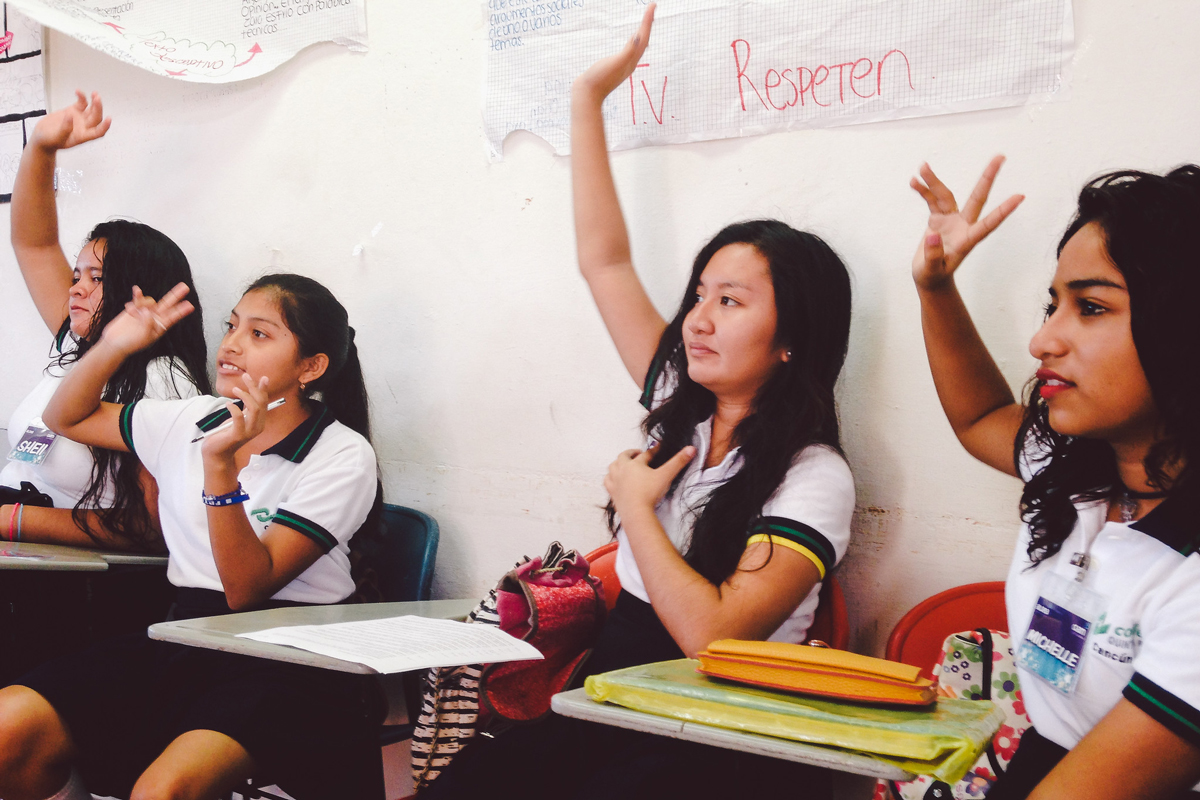
[/imagem_legenda]
2. We honor local leadership
Ideas should bubble up from our partners to ensure we are amplifying local ideas, not trying out our own, or our donors’. To this end, we invest in local staff, deploying resources closer to those we hope to serve, not at the headquarters level.
We are increasingly working with partners that don’t have a traditional NGO form, in particular recognizing the energy, creativity, spontaneity, and unconventional wisdom of youth.
To launch an initiative to empower adolescent girls in rural Liberia and Sierra Leone, for example, we recruited Amé David, a human rights activist based in Liberia, to facilitate the initiative in ways that reflect local norms and address local challenges.
[image_caption caption=”Amé David (center in flowered shirt), GFC’s Regional Capacity Development Specialist for West Africa, with partners in the Ending Violence, Empowering Girls initiative. © CFN” float=””]
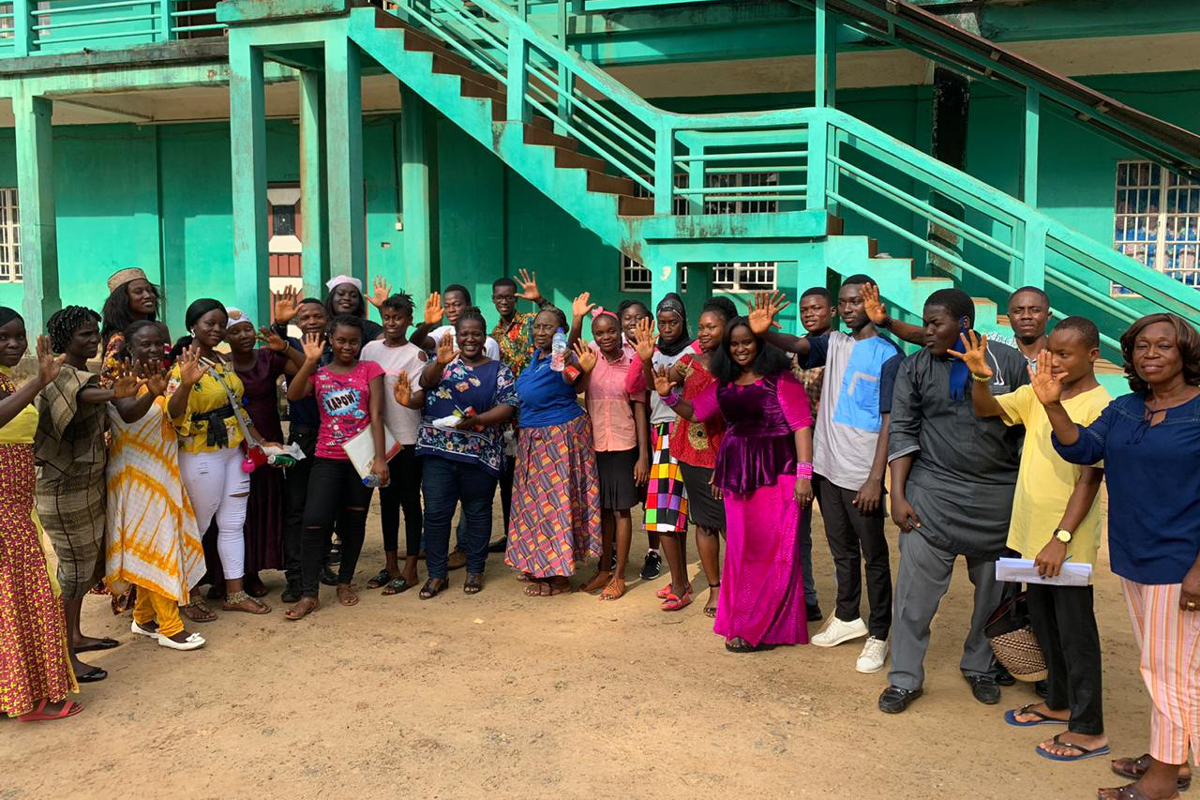
[/imagem_legenda]
3. We acknowledge different forms of power
Funding is one source of power, but so is the ability to make decisions, to allocate non-financial resources, to set the terms of relationships, to take risks, and to challenge norms. We approach our relationships with the partners we support through this power lens.
Through the Spark Fund, a unique, truly participatory fund, we’re supporting global, youth-led change. We will include youth in key decisions through the creation of a participatory grantmaking process, and young leaders from our global Conselho de Liderança Juvenil will be part of the team that manages the fund.
4. We seek allies, not grantees or project managers
We find people with clarity about what they want to accomplish and how they want to do it, and who feel accountable to their communities first. It’s GFC’s job to build trust so our partners feel confident in sharing challenges that we then tackle together. Only then can we support them effectively.
In March 2020, for example, GFC launched a virtual CEO Circle to bring together the leaders of our partner organizations to share experiences and lessons learned about leading during a crisis. These calls have fostered a sense of regional and global solidarity, and we are launching a learning review to understand better how this group of peers can support each other.
[image_caption caption=”During the pandemic, GFC partner Youth Safety Awareness Initiative and alumni partner SHOFCO worked together in Kenya to teach children how to prevent the spread of COVID-19. © Youth Safety Awareness Initiative” float=””]
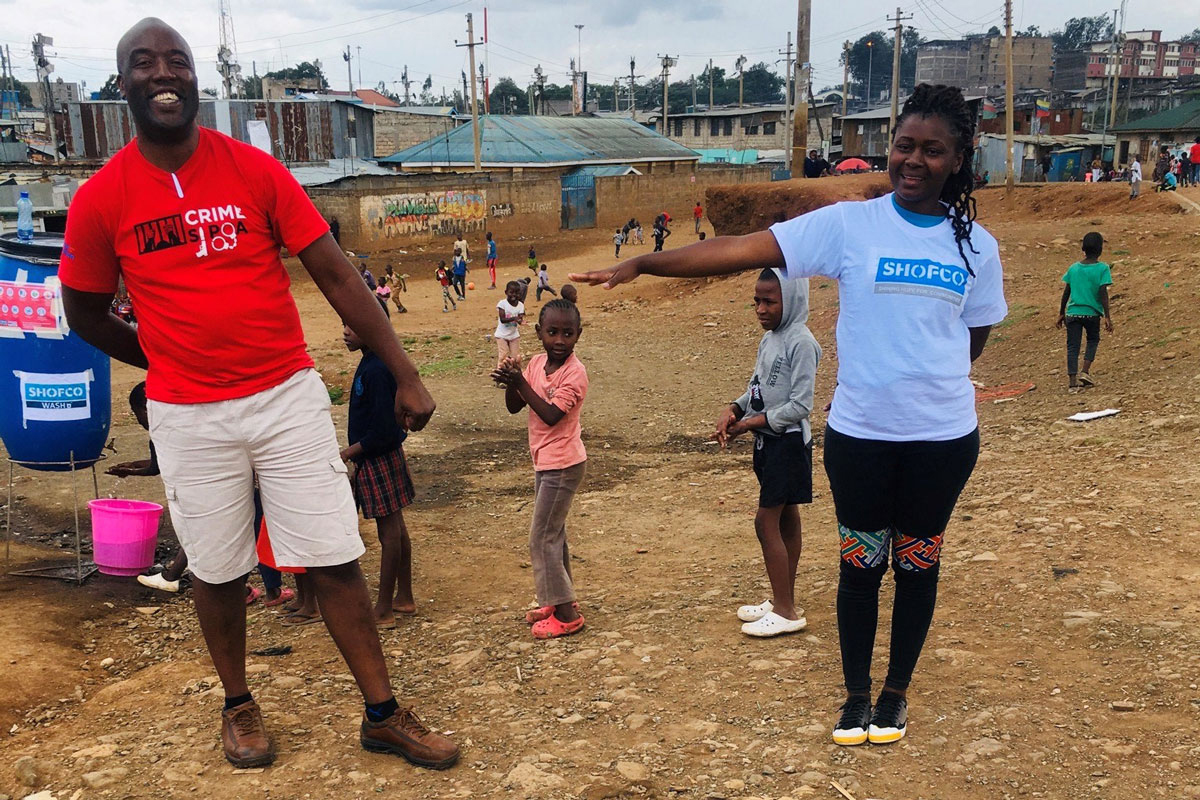
[/imagem_legenda]
5. We embrace what others perceive as risk
An assumption in philanthropy is that it’s very risky to fund small organizations operating in tricky environments, and it’s GFC’s role to disrupt that assumption. To do that, we get to know prospective partners thoroughly up front so we can fund them while accepting the different trajectories that an organization might follow during the course of the relationship. Booming growth, better local adaptation without growth, dissolution after accomplishing a lot, or dissolution after having tried and failed are all acceptable outcomes.
When we initially contacted an organization called Quebrando o Silêncio about joining an initiative in the UK, for example, they thought our offer of flexible funding was a scam because it was so unusual and unexpected. Although Breaking the Silence is an unregistered organization, GFC recognized the importance of supporting their work providing vital services to boys and men of Asian, African and African-Caribbean origin who have been affected by, or are survivors of, sexual abuse.
6. We recognize and cultivate different forms of capacity
For GFC, capacity development does not mean training organizations to be better grantees. Capacity has more to do with learning, adaptation, social capital, and the ability to build networks and to work in solidarity with others.
We have developed a capacity development framework that promotes wellbeing, embraces complexity, and includes a range of tailored supports unique to each partner organization. A key learning from our multi-year intensive Step Up program for a dozen of our partners was that the value was in “the mortar, not the bricks” of capacity development.
[image_caption caption=”Through the Step Up initiative, GFC and 12 local partners from around the world worked together to foster long-term capacity, effectiveness, and sustainability. © GFC” float=””]
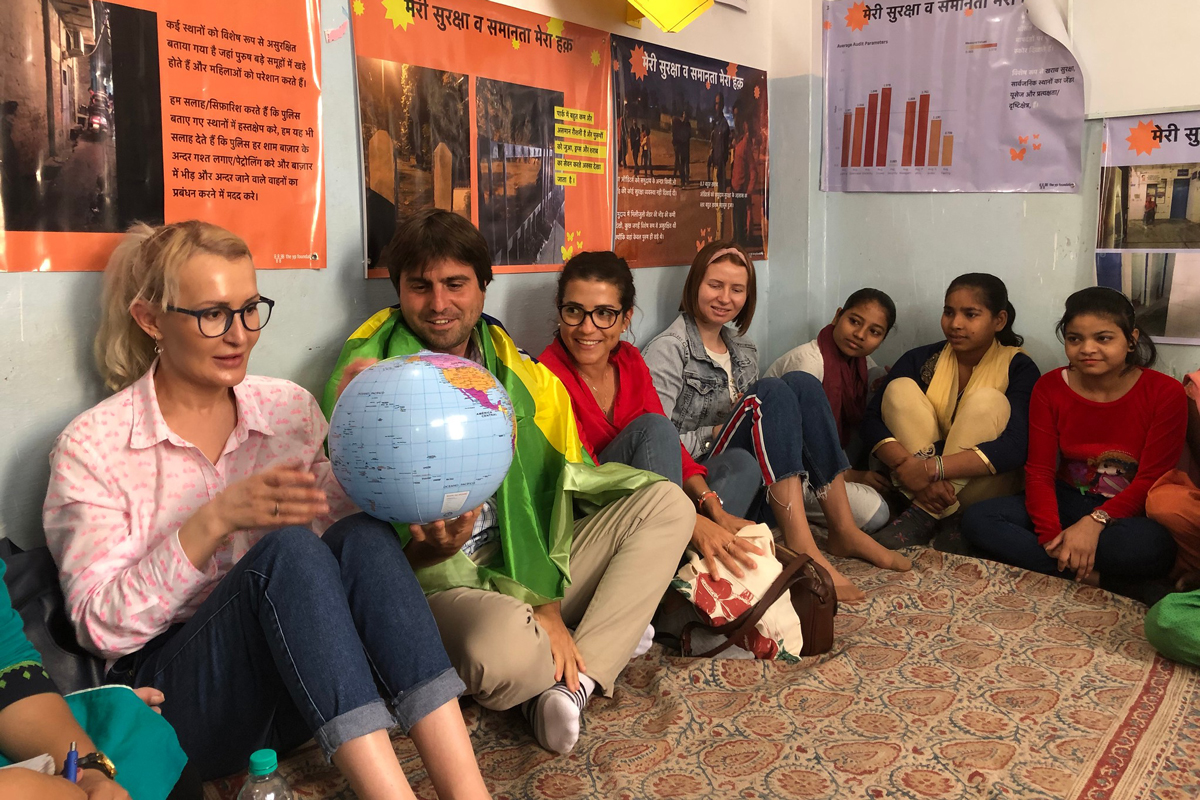
[/imagem_legenda]
7. We actively seek feedback
We ask our partners how we are doing in their eyes at least twice a year in formal surveys and after key interactions. With that feedback, it’s important to make changes that demonstrate we are learning and changing in response.
We also track a general Net Promoter Score as part of our ongoing Constituent Voice work – asking our partners, “To what extent does GFC do what it says it will do?” For the most recent feedback cycle, 97% of partners surveyed indicated 9 or 10 on a 0 (not at all) to 10 (very much so) scale, and none responded with less than a 7, resulting in a very promising Net Promoter Score of 97 (most industries are happy with a score above 40).
GFC is part of a growing community of social innovators aspiring to operate in ways that change the locus of power from resource providers to change-makers.
Galvanized at the Global Fund for Community Foundations’ community philanthropy summit in 2016, with #shiftthepower as its rallying cry, there’s a growing movement to change the way things work and a recognition that it’s tricky to do in practice. Aligned efforts include the Projeto de Filantropia Baseado em Confiança, o RINGO Project, e Power Shift Lab at the International Civil Society Centre, entre outros.
The GFC team welcomes your feedback and solidarity in this work, and I hope elements of our approach resonate with others aspiring to change the way funders and grantees partner to catalyze social change.
Header photo: Young people at a school in Honduras participating in a gender workshop facilitated by GFC partner Organización para el Empoderamiento de la Juventud. © OYE
